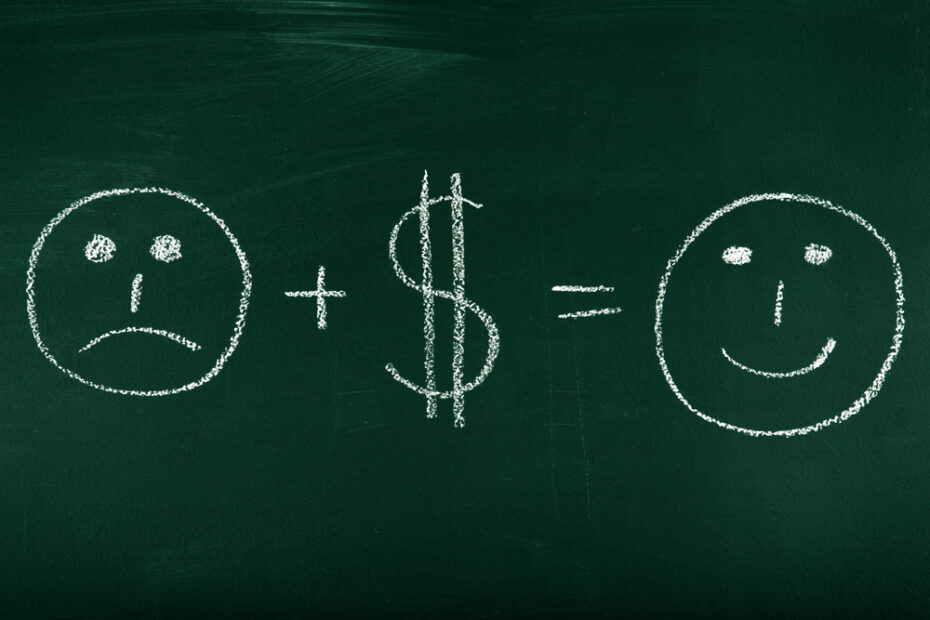Money Buys Happiness But Only Up To A Certain Income Level (Study)

People love to say “money doesn’t buy happiness.” Those people are either very rich and very happy or they are awful at personal finance and lying to themselves. Turns out, however, that anyone who says “money doesn’t buy happiness” is either a liar or they have no idea what they’re talking about.
A previous widely publicized study published in 2010 claimed that the relationship between money and happiness is not linear.
Nobel prize-winning economists, Daniel Kahneman and Angus Deaton, found in their study that the more money someone makes, the happier they are, but the curve flattens between $60,000 and $90,000 a year.
However, in a paper published in the Proceedings of the National Academy of Sciences (PNAS) journal, Kahneman, Matthew Killingsworth and Barbara Mellers of the University of Pennsylvania claim that this conclusion is no longer accurate.

Based on over one million real-time reports of experienced well-being from a large US sample, their research suggests that higher incomes may still have the potential to improve people’s day-to-day well-being, rather than having already reached a plateau for many people in wealthy countries.
Drawing on 1,725,994 experience-sampling reports from 33,391 employed US adults, the present results show that both experienced and evaluative well-being increased linearly with log (income), with an equally steep slope for higher earners as for lower earners. There was no evidence for an experienced well-being plateau above $75,000/y, contrary to some influential past research. There was also no evidence of an income threshold at which experienced and evaluative well-being diverged, suggesting that higher incomes are associated with both feeling better day-to-day and being more satisfied with life overall.
“For very poor people, money clearly helps a lot,” said Killingsworth. “But if you have a decent income and you’re still miserable, the source of your misery probably isn’t something money can fix.”
Upon reanalyzing the data, the researchers found that the least happy 20 percent of participants in the original study did not experience an increase in happiness once their income reached $100,000.
However, for the other 80 percent, the researchers discovered that, in general, happiness does continue to increase as their income rises.
The researchers suggest that happiness may be correlated with larger incomes because it gives people more control over their lives, as evidenced by the participants’ responses.
“The findings show that money does tend to make you happier unless you suffer from a range of miseries which money cannot alleviate,” said Kahneman.
“If there are six bad things in your life that are making you very unhappy, it might not matter how rich you are,” he added.
How Much Money Buys Happiness?
According to an email sent by Killingsworth to Bloomberg, “The trend rises steadily up through the top income group [$500,000] in my data, but how much farther it extends is an open question. I am engaged in some work to solve this, but it’s not done just yet.”
Ok, so if your life is already terrible, money will not buy happiness. However, and this is a big one, if your life is decent and you have loving relationships and good health, more money can lead to more happiness. Store that information away for later and the next time someone says “money can’t buy happiness”, hit them with real facts.